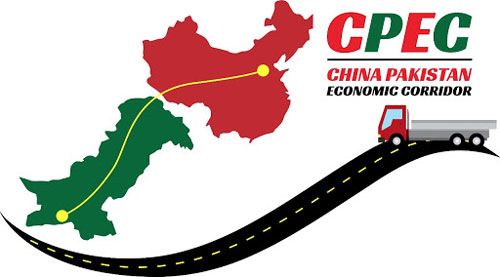During the recent visit of Prime Minister Shehbaz Sharif to Chain, safety, security and systematic execution of the CPEC projects dominated the numerous meetings and even joint statements vividly reflected the strategic importance of proper security arrangements in the country.
Interestingly, in the last week the government of Pakistan even sought help from the United Nation Security Council to eradicate TTP and terrorism in the country. Encouragingly, the civil government and military establishment are on the same page to maintain law and order and combat terrorism in the country to attract more and more inflows of Foreign Direct Investments (FDIs).
Additionally, while visiting and meeting with Prime Minister and the COAS, General Asim Munir, the Minister of the International Department of the Central Committee of the Communist Party of China (IDCPC), Liu Jianchao appreciated the continued support provided by Pakistan’s armed forces in ensuring the security of Chinese nationals and development CPEC projects in Pakistan.
However, he termed poor law & order and increasing terrorism and suicidal attacks against the Chinese nationals as serious threats sabotaging the pace and prosperity of the people of Pakistan and lessening the progress of CPEC projects in the country. He also labeled the security situation in Pakistan remains a major issue for Chinese investors.
The safety and security of Chinese nationals working on various projects of the CPEC in Pakistan has been a constant concern for both Chinese policy makers and Pakistan’s military security establishment. Since the beginning of the CPEC in 2013, several Chinese nationals have been assassinated, particularly in Balochistan and the KP provinces, which are the main areas of CPEC activities in the country.
Minister Liu also highlighted the importance of national narrative and constructive role of the mass media but unfortunately some English media houses are influenced by western resources damaging the credibility and strategic importance of the Pak-China Friendship and as well as the CPEC for the survival and prosperity of the State. However, one of the best policy options for the Chinese policy makers is to reassess their media policy of engagement and re-select loyal media and genuine scholars instead of heavily relying on pseudo intellectuals and fake media men.
The think-tank syndrome is causing certain death to a purified national narrative and giving place to personalized egos in the country. The mushroom growth of dummy think tanks in the twin cities are ruining the real essence of human wisdom, intellect, social marketing, economic branding and political soft imagining concepts and contexts in the country with special reference to CPEC and China. Thus the policy makers of China urgently need genuine and reputable think tanks. Hopefully, this will undoubtedly help augment efforts to strengthen the CPEC projects.
CPEC Phase-I and now Phase-II are the game and fate changers creating mutually beneficial propositions and projects for both the countries. These projects are the custodian and guarantors of the country’s socio development, economic stability, sustainability and achieving the world class infrastructural development and highest ratios of FDIs.
Thus all sincere and coordinated efforts should be initiated to protect, support and strengthen the Pak-China friendship and CPEC projects in the country. A revision in the Chinese policy makers in terms of public diplomacy, media engagement, business interaction and above all advocacy is also urgently required for the easy and smooth sailing of the CPEC projects in the country.
Keeping in view the recent surge and continued terrorist attacks against Chinese nationals, the government announced a new counterterrorism operation, namely “Azm-i-Istehkam” vowing to unleash the full force of the country’s military, diplomatic, legislative, and socio-economic arsenal to decisively defeat terrorism and extremism in the country.
In the recently held the Central Apex Committee of National Action Plan, the Prime Minister Shehbaz Sharif, key federal ministers, provincial chief ministers, services chiefs and top bureaucrats approved a refreshed and re-energized national counterterrorism campaign through the launching of Operation Azm-i-Istehkam, with the consensus of all stakeholders including the provinces, Gilgit-Baltistan and Azad Jammu and Kashmir, vividly reflecting the national resolve to eradicate extremism and terrorism from the country.
Evidently, Azm-i-Istehkam is the latest in a series of counterterrorism operations launched by the Pakistan Army since the mid-2000s. While these operations achieved tactical successes, including the reduction of terrorist incidents and elimination of high-value targets, however, they did not completely eradicate militancy from the country. It is a bitter reality that Pakistan has confronted an unremitting surge in terrorism since the Taliban’s takeover of Afghanistan in 2021, with terrorist activities escalating to critical levels.
Besides the Taliban’s control of Afghanistan in 2021, which emboldened their affiliated groups like the banned Tehreek-i-Taliban Pakistan (TTP), Majeed Brigades, and the Baloch Liberation Army (BLA) by providing them with logistical and ideological support, the security situation in the country was further exacerbated by unending domestic political chaos and socio-economic challenges. Moreover, the landscape of terrorism is evolving, with a broader array of terrorist groups now active within the country. These terrorist groups must have external support and necessary sponsorship too. Hopefully, Azm-I-Istehkam will integrate and synergize multiple lines of efforts to combat the genie of extremism and terrorism in a holistic and comprehensive approach.
It would be blending robust military action, stringent law enforcement and enhanced legislative measures to effectively prosecute and deter terroism. Nevertheless, regional anti-terrorism cooperation may also be sought and strengthened.
In summary, there is an urgent need for national consensus on zero-tolerance against terrorism in the country. The political differences and personal taboos should not derail the Azm- i-Istehkam. Safety, security and systematic implementation of the CPEC projects are the need of the hour. Upholding of this 3Ss strategy would be a value addition for the State, SIFC and the Sino-Pak relations. Sincere efforts must be carried out to dismantle the rented-out religious support and facilitation to these rough elements of the society to achieve the desired goals of socio-economic prosperity and political stability in the country.








